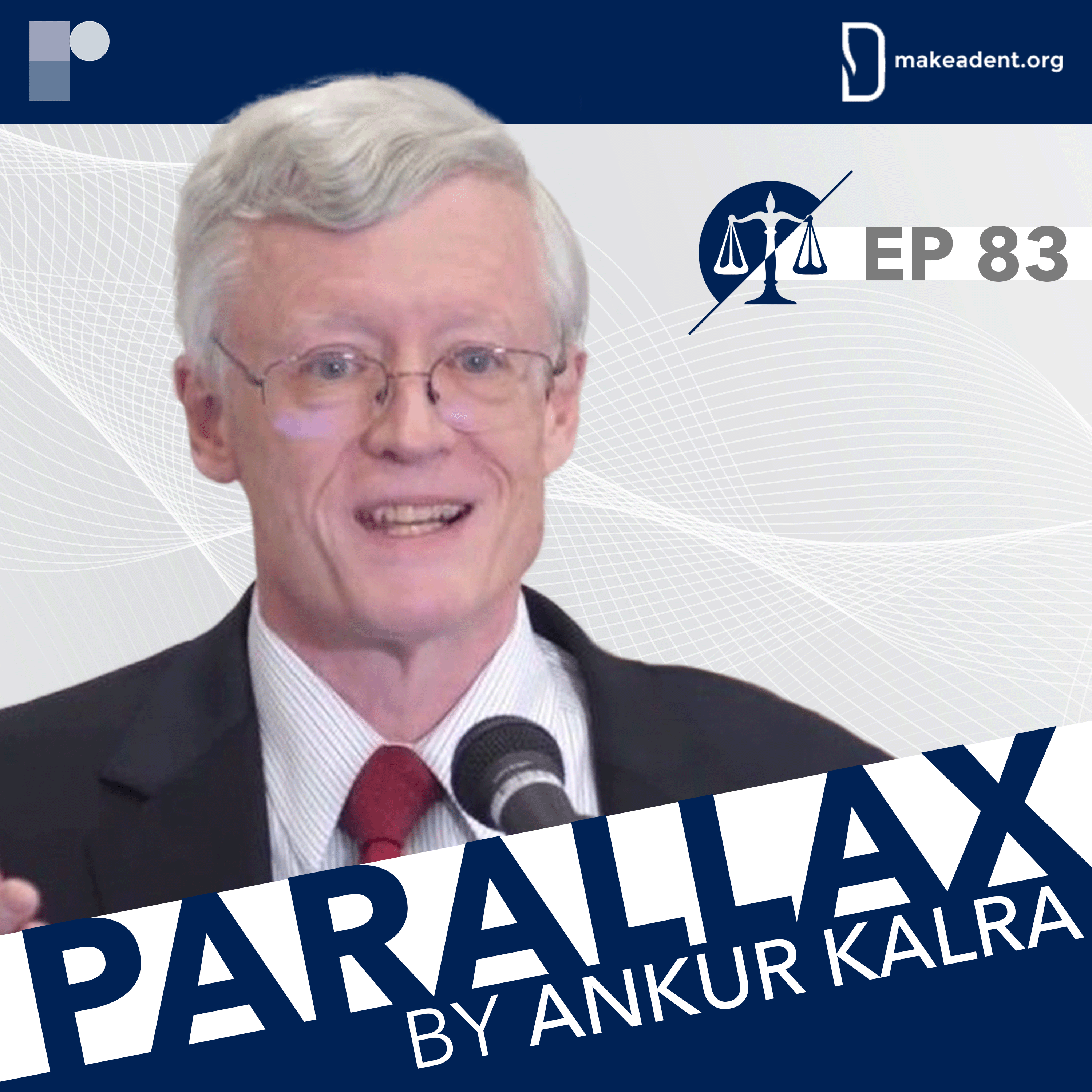
“The hospitals like things just the way they are. It gives them almost complete immunity for any peer reviews, good faith, or bad faith, that they conduct against a physician.”
The Health Care Quality Improvement Act of 1986 considers accused physicians to be guilty of the charges unless and until they can prove their innocence. Over the years many hospitals abused the peer review system to extort and silence competent physicians.
Dr Lawrence Huntoon, Editor-in-Chief of the Journal of the Association of American Physicians and Surgeons, returns for a deep dive into the topic of the hospital peer review system.
In this second episode of our medico-legal series, Dr Kalra invites Dr Huntoon for an overview of the key terminologies and processes of the hospital peer review system.
Dr Huntoon summarises some of key actions you can take as a physician to prepare and defend yourself. We learn more about different sham peer review tactics through recent cases. Dr Huntoon shares his thoughts on what we can do to create a just system and better future for practicing physicians.
What do you need to know about hospital investigations? What is the difference between OPPE and FPPE? How can you get educated on hospital bylaws and processes?
Get involved with the work of AAPS and access more free-to-access resources on this topic: aapsonline.org
Questions and comments can be sent to “podcast@radcliffe-group.com” and may be answered by Ankur in the next episode.
Guest: Dr Lawrence R Huntoon Host: @AnkurKalraMD Produced by: @RadcliffeCARDIO.

In this rich and insightful discussion, Dr Kittleson talks about the origins of famous #kittlesonrules, a collection of tips for doctors shared on Twitter, and her thoughts on mentorship. We learn more about Mastering the Art of Patient Care. Dr Kalra and Dr Kittleson discuss strategies for managing difficult situations in patient care.
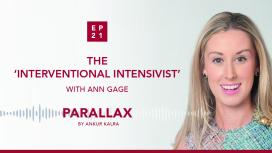
In this episode Ankur Kalra, MD meets with Dr Ann Gage, Cleveland Clinic’s first ‘interventional intensivist’. She discusses her unique skill set, what it means to be an interventionalist in the cath lab but also an expert in cardiovascular intensive care and advocates why such a unique skill set and critical care training are required in today’s modern medicine.
Listen to this engaging discussion between them on the challenges of being a woman in cardiovascular medicine today.
Submit your question to Ankur via: podcast@radciffe-group.com. Hosted by @AnkurKalraMD. Produced by @RadcliffeCARDIO.
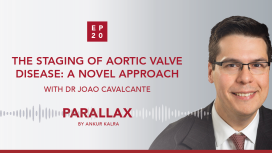
Listen to this, as well as an overview on his interesting childhood and his views on the future of cardiac imaging to treat TAVR.
Submit your question to Ankur via: podcast@radciffe-group.com. Hosted by @AnkurKalraMD. Produced by @RadcliffeCARDIO.

Her recent post on social media went viral. It was a photo of an all-women surgical team carrying out a complex structural heart procedure. It had over 100,000 views and was seen by people in over 75 different countries. It’s clear from this online reaction, that now is the time for women to be recognised for the work they are doing in medicine.
Listen to this engaging discussion between them on the challenges of being a woman in cardiovascular medicine today.
Submit your question to Ankur via: podcast@radciffe-group.com. Hosted by @AnkurKalraMD. Produced by @RadcliffeCARDIO.
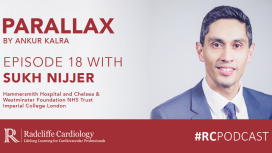
Trials discussed in detail include those presented at the ACC in New Orleans: PARTNER 3 & Evolut Low Risk on TAVR/TAVI, and SAFARI & COAPT on radial vs femoral access; presented at the ESC in Paris: THEMIS and ISAR-REACT 5 on DAPT post-PCI, DAPA-HF on SGLT2i’s for heart failure, and COMPLETE on PCI of non-culprit lesions in STEMI; presented at TCT in San Francisco: TWILIGHT on DAPT post-PCI, and EXCEL at 5 years on PCI vs CABG in left main CAD; and finally, presented at AHA in Philadelphia: ISCHEMIA on medical vs invasive approaches in ischemic events. Submit your question to Ankur via: podcast@radciffe-group.com.
Hosted by @AnkurKalraMD. Produced by @RadcliffeCARDIO.
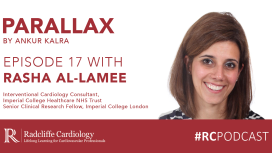
Ankur and Rasha also discuss the findings and unanswered questions of ORBITA, and how recent research in coronary revascularisation and stable ischemic heart disease has (or has not) changed their clinical practice. Finally, in anticipation of its presentation at AHA 2019, Rasha gives an overview of the International Study of Comparative Health Effectiveness with Medical and Invasive Approaches (ISCHEMIA). Submit your question to Ankur via: podcast@radciffe-group.com.
Hosted by @AnkurKalraMD. Produced by @RadcliffeCARDIO.
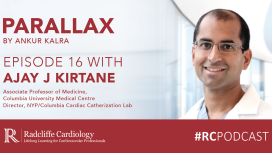
Ajay also talks about how he has negotiated between competing priorities in clinical and academic work, and how he manages fatherhood with a busy career. Ahead of the American Heart Association Scientific Sessions 2019, Ajay also shared what he thinks we can expect from the highly anticipate ISCHEMIA trial. Submit your question to Ankur via: podcast@radciffe-group.com.
Hosted by @AnkurKalraMD. Produced by @RadcliffeCARDIO.
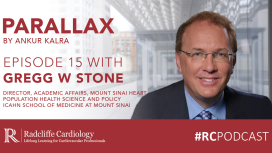
Gregg also shares his tips on how to progress from clinical practice to academic research, and what it takes to be a successful clinical investigator. Finally, Gregg shares with Ankur what personality traits he looks for in mentees and why presenting a final project is not enough. Submit your question to Ankur via: podcast@radciffe-group.com.
Hosted by @AnkurKalraMD. Produced by @RadcliffeCARDIO.
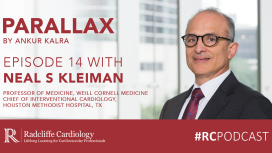
Digging more into the practicalities of everyday work-life, Neal reflects on the challenges of reporting to multiple bosses who have different goals, and how geography enabled him to move between cathlab and academia. Neal also shares what he looks for in early career academic cardiologists. Submit your question to Ankur via: podcast@radciffe-group.com.
Hosted by @AnkurKalraMD. Produced by @RadcliffeCARDIO.
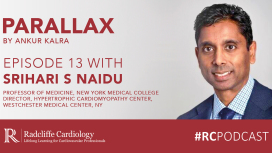
Ahead of TCT 2019, Ankur and Hari also talk about which trials presented in San Francisco they are most excited about! Submit your question to Ankur via: podcast@radciffe-group.com. Guest @SrihariNaiduMD.
Hosted by @AnkurKalraMD. Produced by @RadcliffeCARDIO.
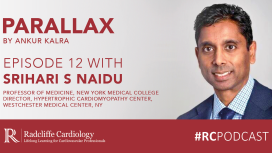
Having recently applied for the programme himself, Ankur also speaks with Hari about the history, purpose and future of the Society for Cardiovascular Angiography and Interventions (SCAI) Emerging Leader Mentorship (ELM) Fellowship Programme. Submit your question to: podcast@radciffe-group.com. Guest @SrihariNaiduMD.
Hosted by @AnkurKalraMD. Produced by @RadcliffeCARDIO.

The charity organisation, Women as One is an agent for women and men to be part of medicine that is built on talent, rather than a privilege. Roxana and Ankur discuss the role of mentorship and family-friendly work environment in mending the broken house of cardiology. Roxana talks about the practical tools that are available for women to take the next steps in their career and achieve their goals.

Dr Kalra asks Dr Mauri about early influences and her traineeship with legendary interventionalists, the late Donald Baim and Richard Kuntz. Dr Mauri talks openly about her decision-making process and the importance of selecting your priorities and committing to them. Ankur asks Laura about her decision to go into industry. Laura shares her thoughts on medical innovations and meeting urgent needs with unique perspectives.
What is Dr Mauri’s advice for a young cardiologist? How did she balance research and patient care? What are the questions that helped her decision making? How does Dr Mauri think about innovations in medicine?

Brigham and Women’s Hospital’s Health Equity Committee decided to confront the status quo by asking: How is racism on a structural level present within our walls?
Ankur Kalra’s guests Michelle Morse (Founding Co-Director of EqualHealth and Assistant Professor at Harvard Medical School) and Lauren Eberly (Cardiology Fellow at the University of Pennsylvania) are co-authors of a retrospective study that demonstrated what had previously only been observed: That black or brown heart failure patients ended up in general medicine rather than specialised cardiology services. Following the publication of the study in November 2019, the Health Equity Committee started to roll out anti-racism trainings and to work on objective admission guidelines to mitigate biased behaviours.
Aarti Bhatt (Assistant Professor of Medicine at the University of Minnesota), member of the Minnesota chapter of Campaign Against Racism, talks about their initiative to support projects that have a positive impact on local communities on a global scale.

In this week’s Parallax, Dr Kanaa’N, the director of the program, and Dr Lahorra, chairman of the Heart, Vascular & Thoracic Department of Akron General introduce the listeners to the foundations of their program and the paradigm shift brought by TAVR.

Ankur Kalra asks Grant W Reed, Director of the Cleveland Clinic’s STEMI program, to reflect on the actions they took and the challenges of delaying cardiovascular procedures in the wake of the coronavirus pandemic. Dr Reed offers insight on the factors that influenced the Cleveland Clinic’s STEMI policy for COVID-19. Ankur and Grant discuss the triage considerations for patients with structural heart disease and the steps the clinic took to protect its healthcare workers.





